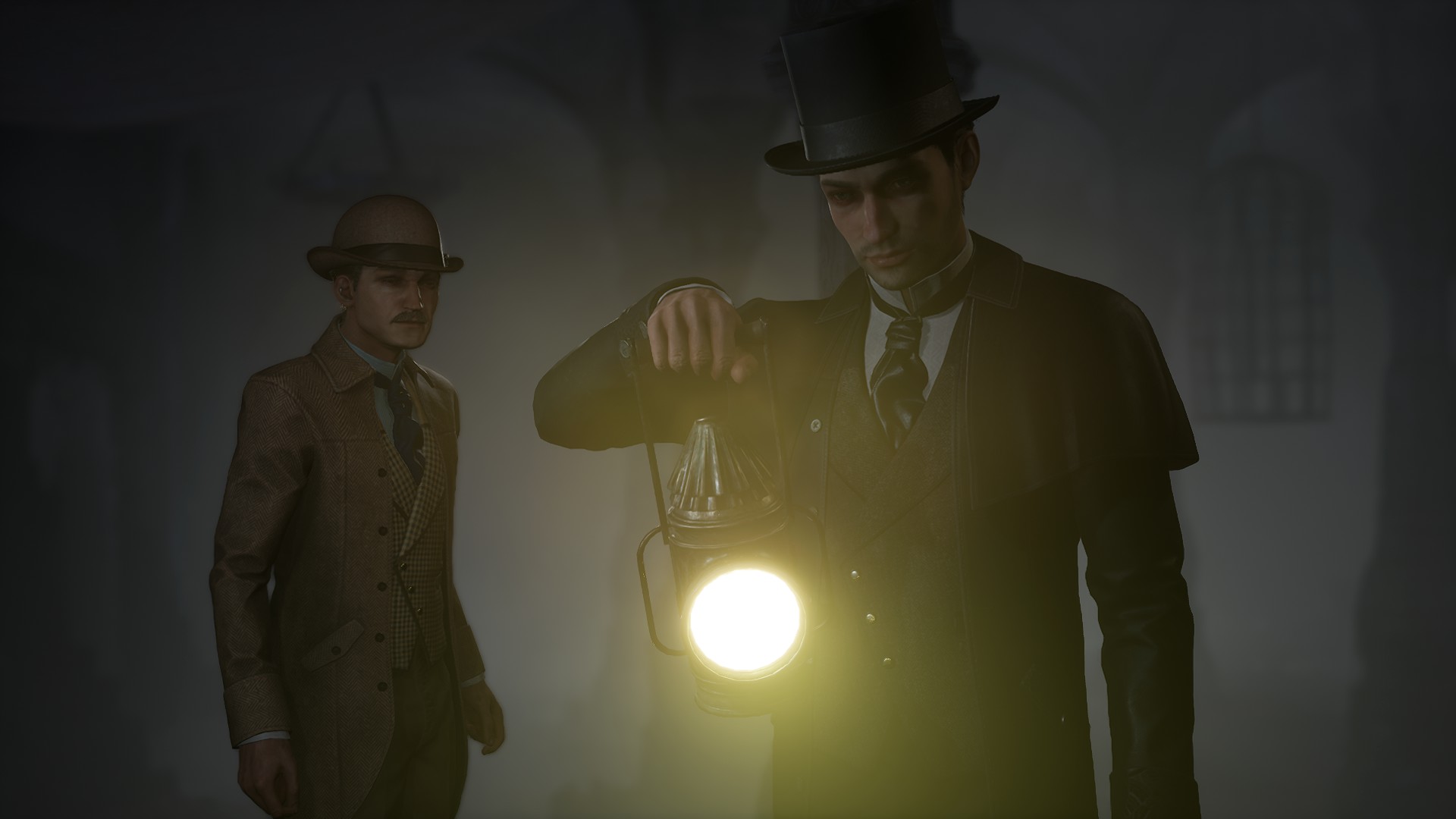Our Verdict
An enthralling horror mystery that, outside of its relatively short length, doesn't seem to have suffered at all from the difficult circumstances of its development.
PC Gamer's got your back
What is it? A sequel to Sherlock Holmes: Chapter One that sees the famous detective investigating the weirdness and horror of the Lovecraft Mythos.
Release date April 11, 2023
Expect to pay $40/£40
Developer Frogwares
Publisher Frogwares
Reviewed on AMD Ryzen 9 5900X, 32GB RAM, Nvidia Geforce RTX 3080
Steam Deck Playable
Link Official site
It's impossible to review Sherlock Holmes: The Awakened without addressing its circumstances. Caught in the chaos of Russia's invasion of Ukraine, developer Frogwares decided to crowdfund a project that might be quickly achievable amid regular powercuts, internet outages, and worse disruption: a remake of its 2008 Sherlock Holmes/HP Lovecraft mash-up.
The surprise, then, is that the resulting game doesn't feel troubled by its fast and difficult development. Far from a rushed retread of the original game, Sherlock Holmes: The Awakened feels fully reimagined with care and polish, and the result is an impressive, modern detective game that will feel fresh for longtime fans, but also requires no nostalgia or knowledge of the original to enjoy.
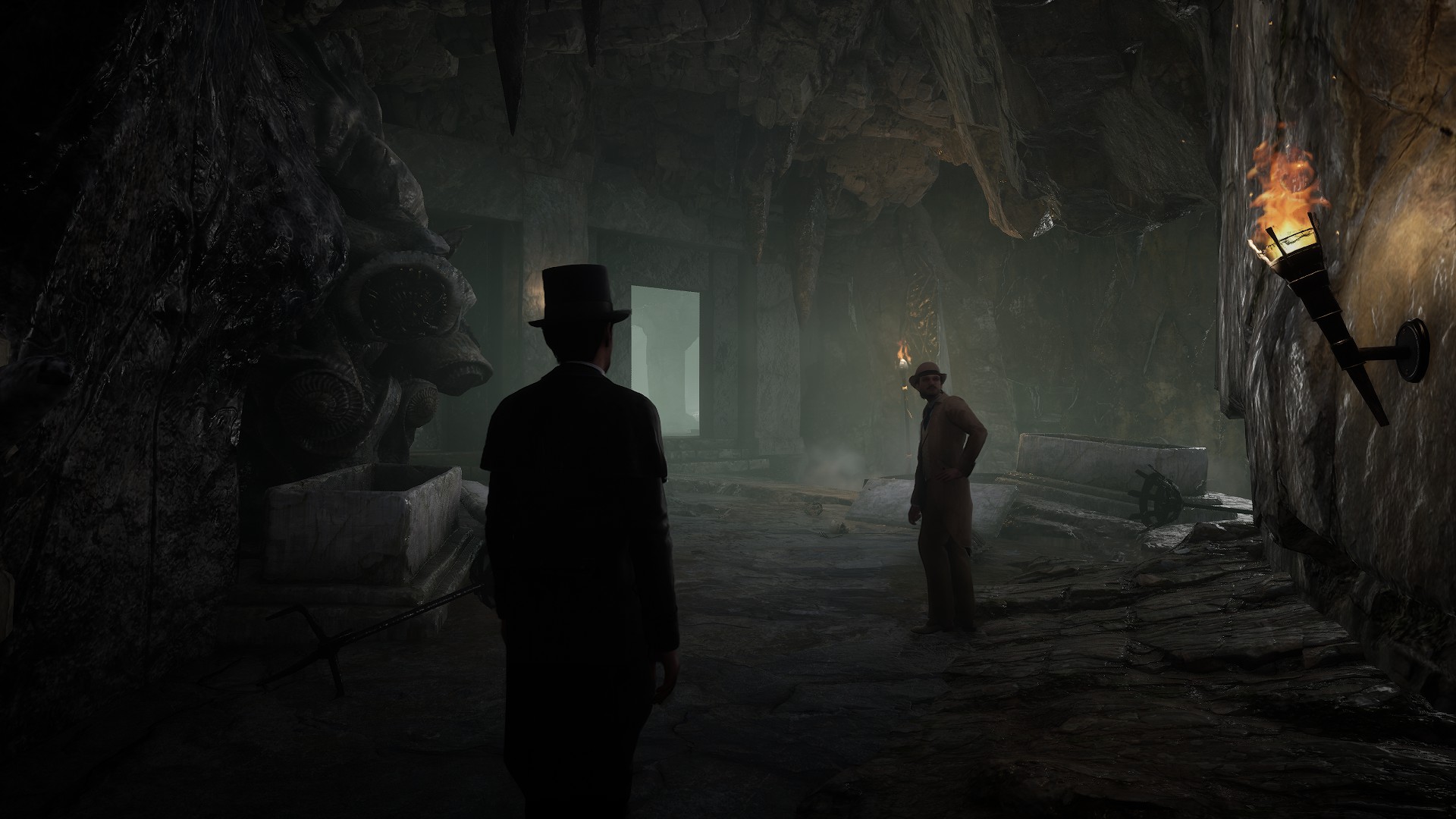
It helps that it's a killer premise: iconic detective Sherlock Holmes taking on the strangeness of the Lovecraft Mythos. The man who never stops digging and always finds a rational explanation meets a world where the more you investigate the more bizarre and horrifying the answers become, until you go mad for lack of any rationality at all. It's an unstoppable force hitting an immovable object, and the resulting sparks make for not only a compelling story, but an interesting poke around Sherlock's own psyche—already a mind in some ways adrift from normal thinking, in Frogwares' interpretation.
The game starts out on the streets of London with a cheekily mundane mystery—who stole Sherlock's morning newspaper?—and unfolds into a grand conspiracy of eldritch cults, profane rituals, and betentacled gods that sends Watson and Holmes off on a grand journey. Unlike the studio's previous Sherlock Holmes game, Chapter One, this is a linear adventure rather than an open world, but it has no lack of variety, taking you to a foreboding Swiss asylum, the sunny streets of New Orleans, crocodile-infested swamps, and more.
Each location is a beautiful diorama, and holds its own set of mysteries for you to solve. As Sherlock, and occasionally Watson, your job is to collect clues and ultimately connect them into conclusions that will allow you to progress. The systems are largely ported over directly from Chapter One—presumably a choice made to save on time and resources, but it works in the game's favour because they're still great mystery-solving mechanics.
Clues are recorded in your casebook for reference, and will be marked with icons suggesting how they might be expanded on or used to gain new clues. If you find a sketch of a person's face, for example, it might make sense to ask bystanders if they recognise them, or look them up in the archives, while a set of footprints can be followed back to their source to discover more evidence of who caused them.
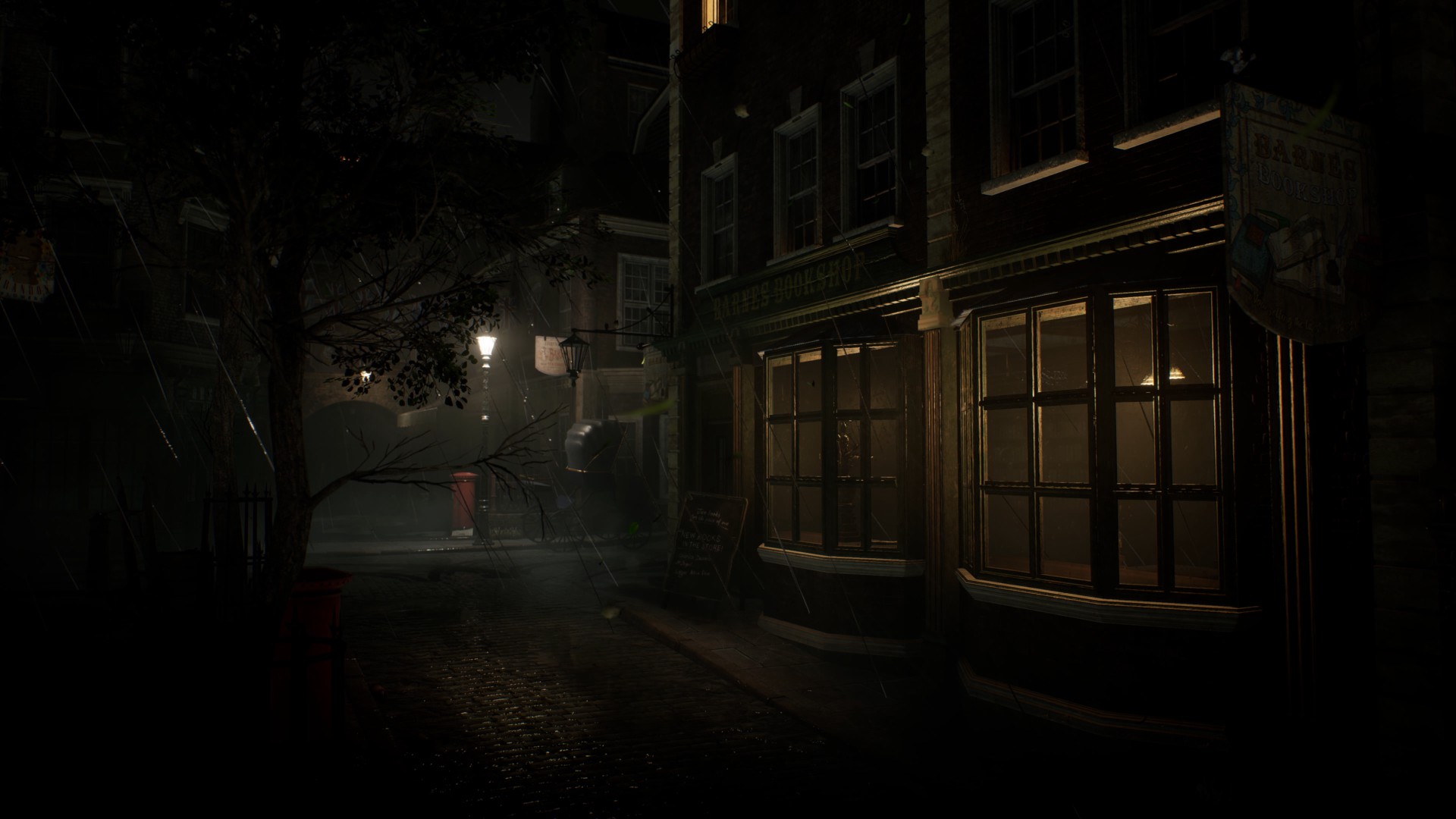
As you progress through a case, you unlock questions, which you can attempt to answer by connecting relevant clues. How did the victim die? Connect your description of his wounds with the nearby candlestick, and you may be one step closer to finding out if the butler did it. You can also visually reconstruct scenes, moving through the space placing ghostly representations to recreate past events, and interrogate, profile, and accuse suspects.
Altogether it's simple but elegant. The process of examining crime scenes, reading through evidence, and ultimately figuring out the connections between people, objects, and places strikes a wonderful balance—making you feel like you're doing real detective work without ever leaving you to flounder when you haven't made the right connection yet. As ever, Sherlock is the perfect avatar for this kind of play, because he's the man who can believably spot any clue and call on any piece of knowledge to explain it. He does the hard work of identifying what might be important and what it might mean, and you luxuriate in assembling the puzzle, feeling like a genius all the while.
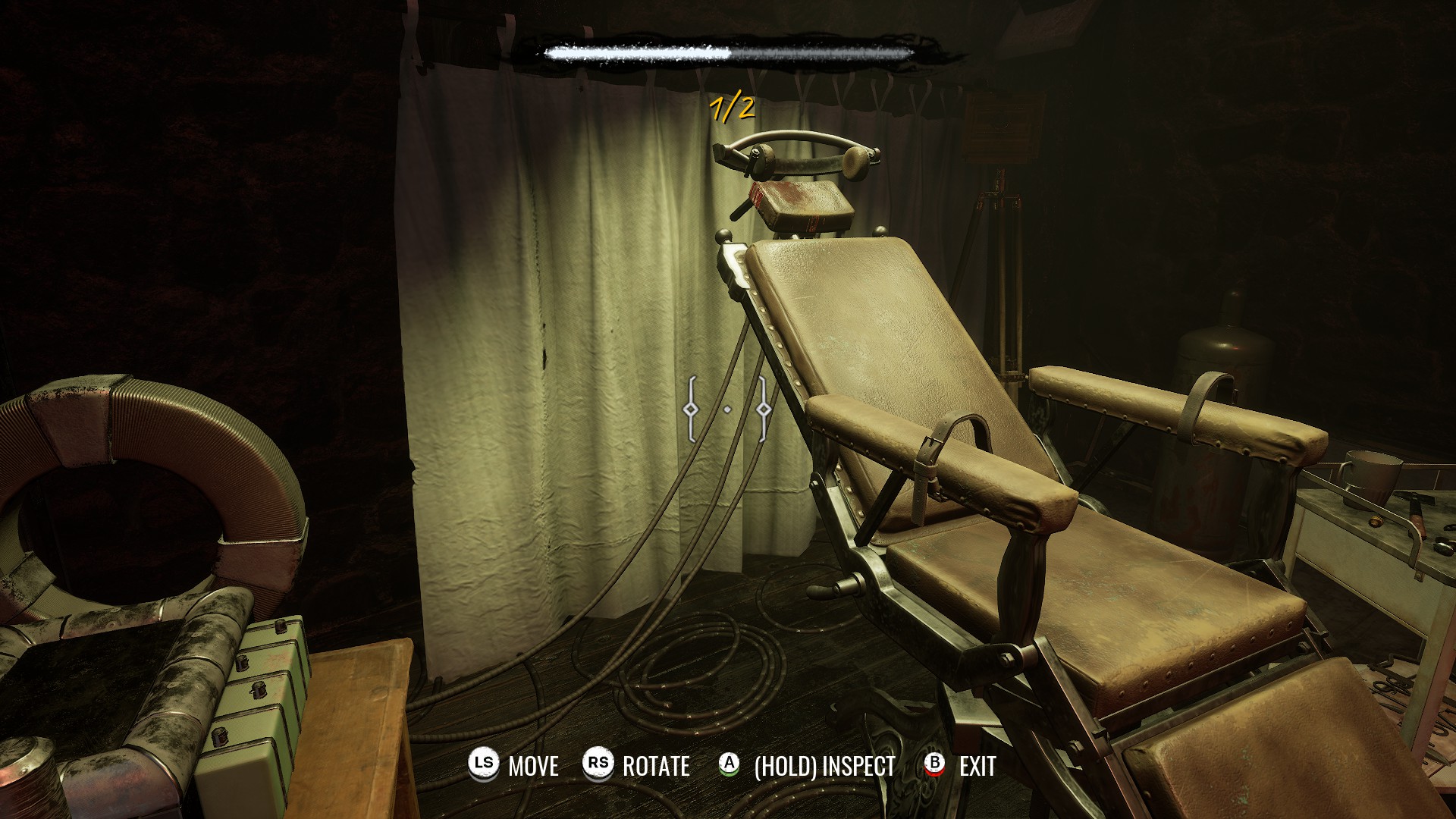
If it has a flaw, it's that it's easily brute-forced—if you get a bit lazy, it's often possible to just bash together wrong answers until eventually you find the right one by process of elimination. But that does feel like a small price to pay, because the flip side of it is that it's hard to get truly stuck—usually the bane of detective games. Outside of a couple of awkward puzzles, Sherlock Holmes: The Awakened always keeps things moving gently along, giving it a slow but considered pace that never feels stodgy.
It's a pleasant surprise, too, how much the game simply focuses on that core experience. Previous games from Frogwares have attempted to mix in action sequences and combat for a more blockbuster feel, typically to poor result, while the original 2008 version of The Awakened is full of lengthy, awkward puzzles to accomplish simple tasks. There's almost none of that here, and it's welcome that the game sticks to what it's best at.
What it does do, however, is sometimes bend its clues system towards point-and-click-esque problem solving—for example, treating "How do I sneak past this guard?" as a mystery to solve, with a solution involving combining unlikely items. These moments work well enough to move the plot forward without disrupting the flow of play, but they're undeniably less satisfying than simply dissecting a crime scene.
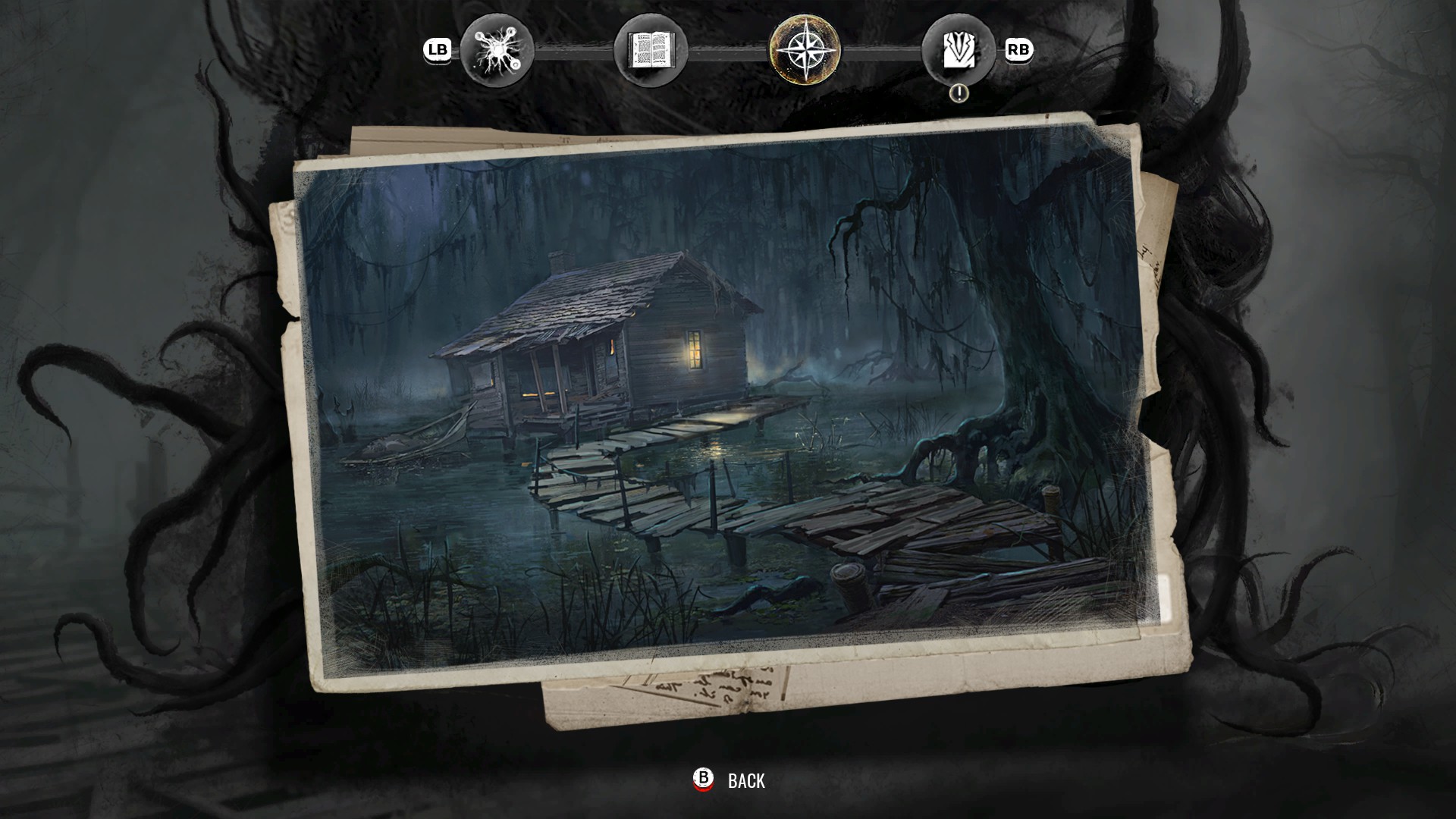
The focus on clue-hunting and mystery solving suits the Lovecraftian narrative down to the ground. The Awakened is the rare game that uses the Mythos as a source of subtle, building tension and atmosphere, instead of an excuse for tentacles bursting out of everything. A few hallucination sequences, in which you solve obtuse puzzles in a strange void, miss the mark by shining too close a light on the weirdness, but outside of those the game has a wonderful, creeping sense of dread. Human evil is always at the forefront, rather than cosmic monsters crawling out of portals, and the game is all the more unsettling for that—particularly in its bleak final confrontation.
Frogwares has always seemed to me to take a special pleasure in the grisly and occult. Even its more straight-laced Sherlock games revel in moments of creepiness and strange occurrences. In The Awakened, you can practically see the developers' eyes twinkling every time you discover some grim new scene, and the enthusiasm shows through in all sorts of creative moments.
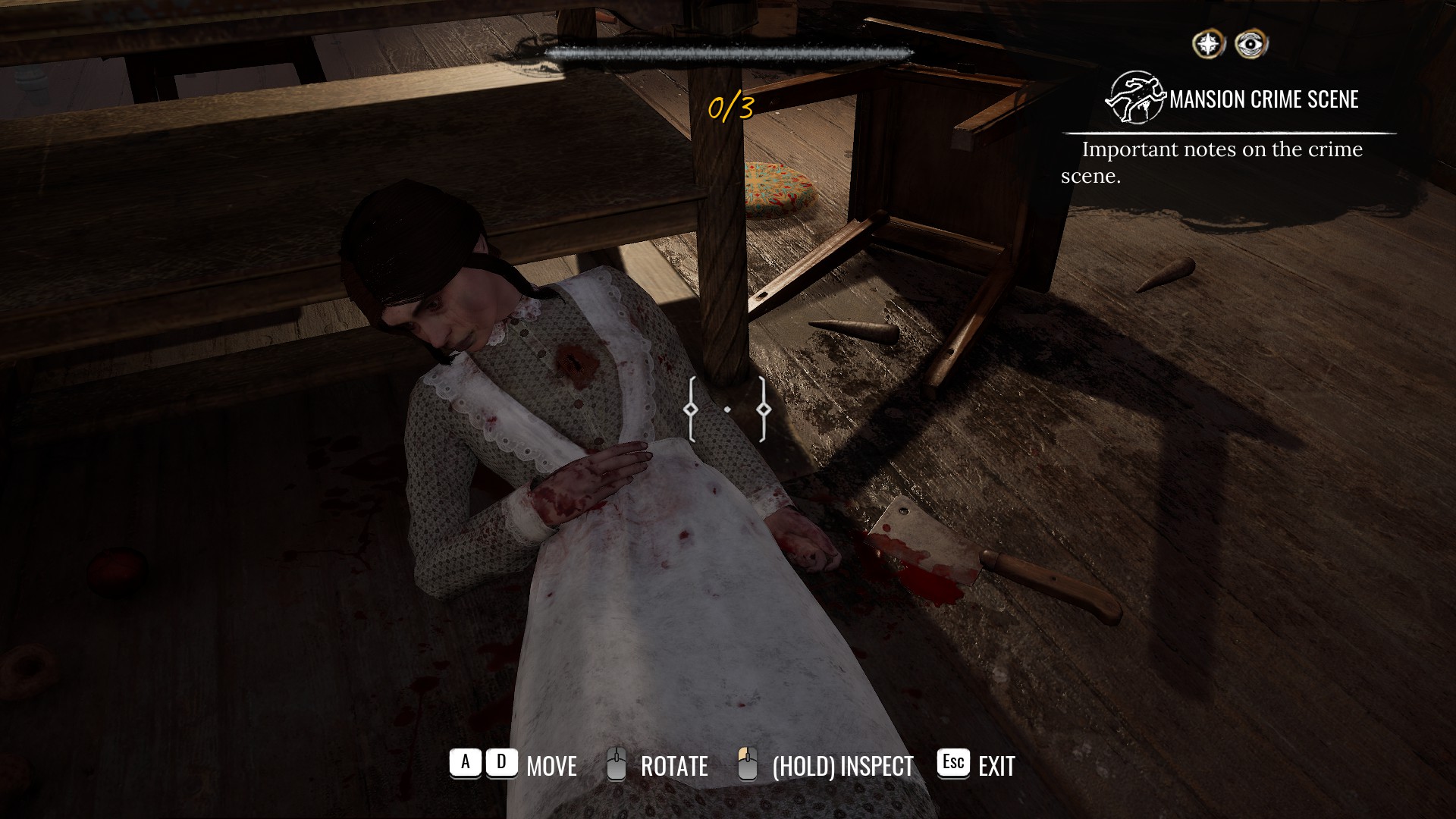
And yet there's enough restraint to the discoveries they throw in Sherlock's path to just about keep it ambiguous whether truly supernatural forces are at work or not. Holmes' own deteriorating sanity and the cult's expertise with mind-bending substances offer just enough plausible deniability in the game's more surreal moments to allow players to draw their own conclusions—one last mystery where the solution is up to you, given a satisfying pay-off either way in the game's final dialogue choices.
Sherlock Holmes: The Awakened is an impressive detective game by any metric. Factoring in that it was developed in an active warzone, it's a small miracle. Cleverly designed, atmospheric, and polished, the only sign it shows of being compromised by its circumstances is its short length. At about 12 hours, it did leave me wanting more, and perhaps more importantly it will feel slight for some compared to its $40/£40 launch price tag. It's hard to ignore that you can play more than twice that amount in Chapter One for the same price, and the fact that all the game's side quests have to be bought separately as DLC leaves a bitter taste in the mouth.
But if you're happy to accept that as throwing a bit of financial support behind a developer fighting to keep doing what it does in impossible circumstances, your reward is some of the best work Frogwares has done yet. An opening message from the team describes The Awakened as "our own act of resilience against the chaos and horror the enemy tried to impose on our livelihood". This tale of a stuffy Victorian detective couldn't be a more unlikely form of defiance, but in its confident craftsmanship it stands testament to the extraordinary fortitude of its developer.
An enthralling horror mystery that, outside of its relatively short length, doesn't seem to have suffered at all from the difficult circumstances of its development.

Formerly the editor of PC Gamer magazine (and the dearly departed GamesMaster), Robin combines years of experience in games journalism with a lifelong love of PC gaming. First hypnotised by the light of the monitor as he muddled through Simon the Sorcerer on his uncle’s machine, he’s been a devotee ever since, devouring any RPG or strategy game to stumble into his path. Now he's channelling that devotion into filling this lovely website with features, news, reviews, and all of his hottest takes.
